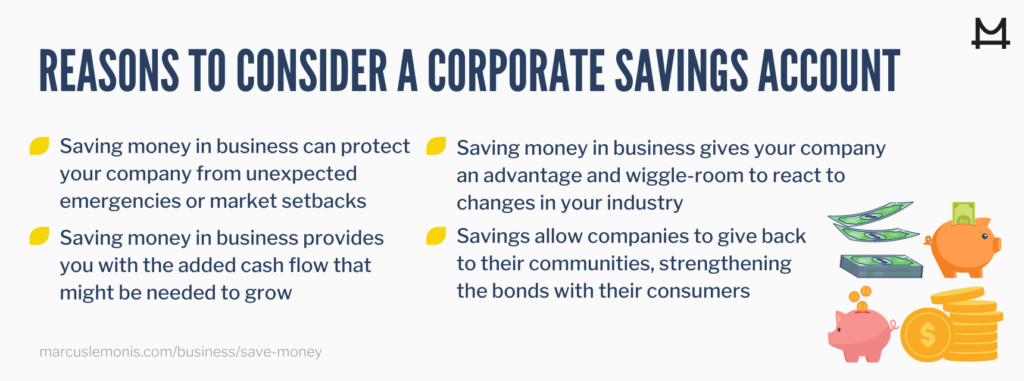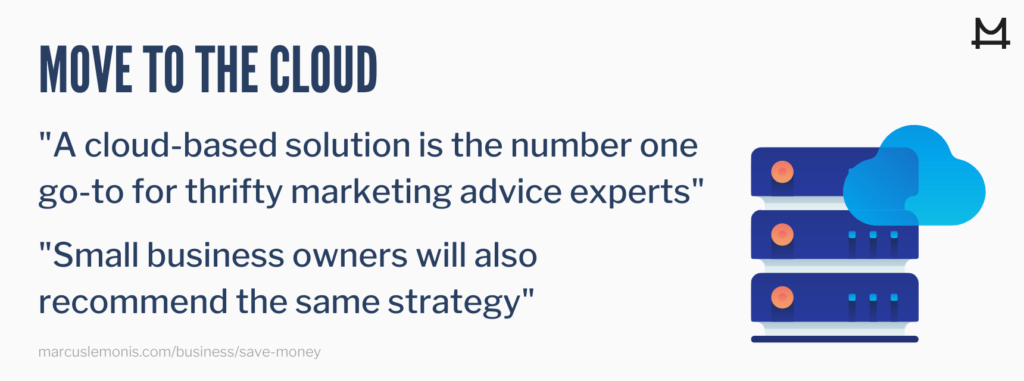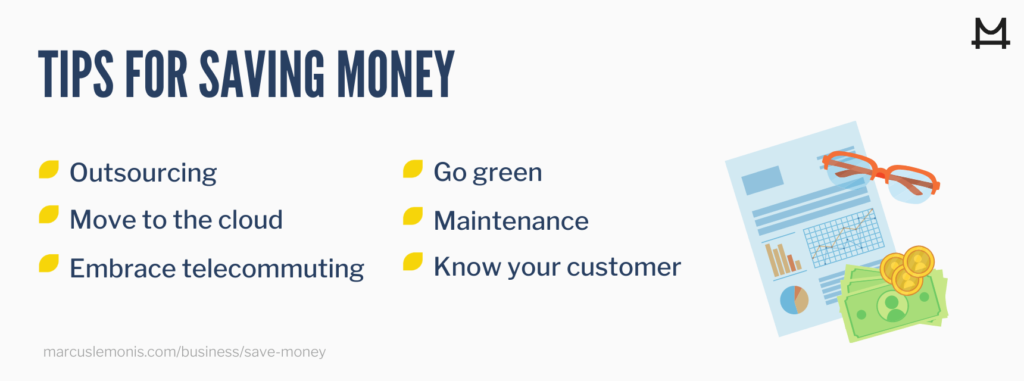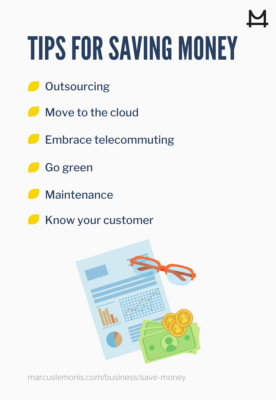When it comes to small business finances, many companies operate just like many American households. Where some families live paycheck to paycheck, businesses often live from payroll to payroll. But smart business owners understand the benefits of saving money in business. In contrast, wise business owners think two steps ahead and prepare now for an unexpected future. Success is a double-edged sword that can cause business owners and entrepreneurs to think differently about money and resources. Success can be a great motivator to continue pushing and growing. Still, unfortunately, many small business owners never understand the benefits of thinking ahead and reinvesting profits wisely—much less saving money for a rainy day.

Entrepreneurs who wish to grow, solidify, and expand their companies need to make wise decisions about their resources. And yes, that includes a corporate savings account. Many small business owners starting out are so strapped for cash that every single penny is tied into the operation in one way or another. But every business should strive to build and maintain a strong safety net, even if some sacrifices need to be made. Many small business owners never even consider opening a savings account as part of the business holdings. It is not only smart but also crucial to have a little cushion to push forward.
Here are four main reasons why you should consider a corporate savings account for your company (Gosnell, 2019):
1. Saving Money in Business Can Protect Your Company From Unexpected Emergencies or Market Setbacks
Every business has highs and lows. Sometimes during those lows, sales become difficult, and cash is depleted. Corporate savings accounts are liquid assets that can be tapped to pay expenses that are more than the current receivables will cover.
2. Saving Money in Business Provides You With the Added Cash Flow That Might be Needed to Grow
Some purchases and investments can only be made, without falling into bad debt, through years of savings. Big companies work on big projects that usually only big companies can accomplish because they have the resources to do so. For example, Disney has expanded into developing its own streaming platform, and Apple is developing a new fitness membership service powered by Apple Watch. Large corporations often stay big because they have the financial cushion to invest in big ideas outside their day-to-day expenses. Small businesses that wish to be big should focus on more significant projects with staying power. Many start up small businesses have no set financial plan beyond staying open week after week. But even a small venture can start saving money in business today for future plans.

Let’s look at an Illinois-based company that Marcus consulted with in 2019. The company, established in 1958, manufactures and markets non-slip safety products for people and their pets and has been an industry leader in safety and accessibility for many years. Marcus had the pleasure of starting a business venture with them to help them grow. The issue was that even though they had the capacity and the knowhow to take their business to the next level, they did not have the necessary cash flow to double the business size as planned.
They needed cash to invest in things like new trade shows, more raw materials, marketing of the latest products, and overall growth. If they had a corporate savings account in place, they may have been able to put all their plans in motion without any additional help or having to sell company equity to external investors. Although many small businesses may not be able to consistently fund a savings account, it’s an important goal to work toward in helping your business save for a rainy day.

3. Saving Money in Business Gives Your Company an Advantage and Wiggle-Room to React to Changes in Your Industry
Many small businesses grow significantly during difficult financial times like recessions, because they have set aside the resources to not only survive but to expand. By having a strong cash position, a company with enough savings can expand by acquiring a poorly performing competitor, developing product knowledge and intellectual property, and even by putting their money toward the recruitment of the best talent in the down-market.
4. Savings Allow Companies to Give Back to Their Communities, Strengthening the Bonds With Their Consumers
If there is a local, or even global, cause that you and your employees feel strongly about, any time is a great time to start giving back when and where you can. Companies that develop the habit of saving money will find many beneficial reasons for giving back a portion of their profits, focusing on the future. It’s like Marcus always says, “there is no being generous to a fault. Because there is no fault in being generous.”


Tips to Saving Money in Business
Here are some essential tips that could put your small business on the right path for a rainy day or future growth. These money-saving tips are from real small businesses that are succeeding in a tough economy. Real people, real companies, and realistic ideas to help you cut costs, lower your overhead, and still reach your target market and build your business:
Outsourcing
Employees are crucial to get the job done. Still, employee costs—from payroll, benefits, office space, and insurance—can be the most significant part of your budget. The founder of a Connecticut-based communications firm has said she saves money by keeping the full-time staff to a minimum, and outsourcing work to independent contractors for the overflow work that the team cannot handle as needed.
Move to the Cloud
A cloud-based solution is the number one go-to for thrifty marketing advice experts. But real small business owners will also recommend the same strategy. Many small business owners recommend avoiding the cost of expensive hardware and using cloud-based services such as Salesforce, PayCycle, and Staffmate to house data.


Embrace Telecommuting
Working remotely might not be an option depending on your type of business, but if it is, it can be a huge money-saver. Some small businesses have never even had a physical office space. Keeping things virtual allows companies to avoid the expense of an office space and the operating costs that come with it (utilities, insurance, maintenance, supplies, etc.) and focus on producing work at minimum overhead. If it makes sense for your business and your line of work, it may be worth considering converting some or all of your staff to a remote-work model.

Go Green
Not only is going green good for the planet and a great PR move, but it’s also a smart financial move. According to Shel Horowitz, author of Guerilla Marketing Goes Green: Winning Strategies to Improve Your Profits and Your Planet, minor tweaks in your day-to-day operation such as keeping equipment on a power strip and turning it off when not in use, or replacing your existing printer with one that prints on both sides of the paper, thus reducing paper waste and cost can really add up in savings (Levinson & Horowitz, 2010).
Maintenance
Does your business really need a daily cleaning service? Some financial experts recommend reviewing ongoing maintenance costs such as these and cutting back wherever possible. There’s no harm in asking your team to empty their trash can on the way out. Reducing the frequency of maintenance costs, like having the cleaning service come in weekly instead of daily, can save money without having to cut the maintenance service in its entirety.
Know Your Customer
This simple advice from Allen Ash of Almar Sales Co., a family business founded in 1965, is perhaps the most important. Suppose you know your customers well enough to know their online habits. Then, you can focus your online marketing to more granular and cost-effective efforts instead of spreading your resources out over a whole arena of Internet options. Even if you are not in e-commerce, if you know what your customers like, how they respond, what they want, and what they’ll spend, you eliminate all the other options from your budget. Eliminating useless options—which could translate to product sizes, colors, flavors, menu items, or whatever may apply to your type of business—means the money you do spend is more focused and will get a better response. So not only is your company saving money initially, but you’ll be producing more profit from what you do produce.


As you can see, small businesses that can withstand the test of time understand that there will be good times and challenging times. These ups and downs might come in many different forms, depending on your type of business. Maybe your company depends on seasonality or tourism; maybe there’s a market crash that affects your clients’ spending power. Maybe there’s a pandemic that forces you to shut down for some time. Whatever the situation may be, you will be better off if you have a corporate savings account as a safety net ready to catch you, should your business fall. And situations don’t have to be as drastic as a tech or real estate bubble popping. It can be as simple as consumer tastes changing or a new competitor setting up shop down the street.
Saving money in business will grant your company the time to understand the market changes and respond in a way to retain and attract new customers.
Remember that the bottom line is this: The wise business owner prepares today for the unexpected tomorrow by saving money for a rainy day.
- Do you currently have funds for a rainy day for your business?
- What can you do now to start saving?
Gosnell, K. (2019, September 04). Why savings matter for businesses. Retrieved from https://www.business.com/articles/why-companies-need-savings-account/
Levinson, J. C., & Horowitz, S. (2010). Guerrilla marketing goes green winning strategies to improve your profits and your planet. Hoboken, NJ: John Wiley & Sons.
Mueller, A. (2011, April 1). 27 Money-saving tips from successful small businesses. Retrieved from https://www.americanexpress.com/en-us/business/trends-and-insights/articles/27-money-saving-tips-from-successful-small-businesses-annie-mueller/





